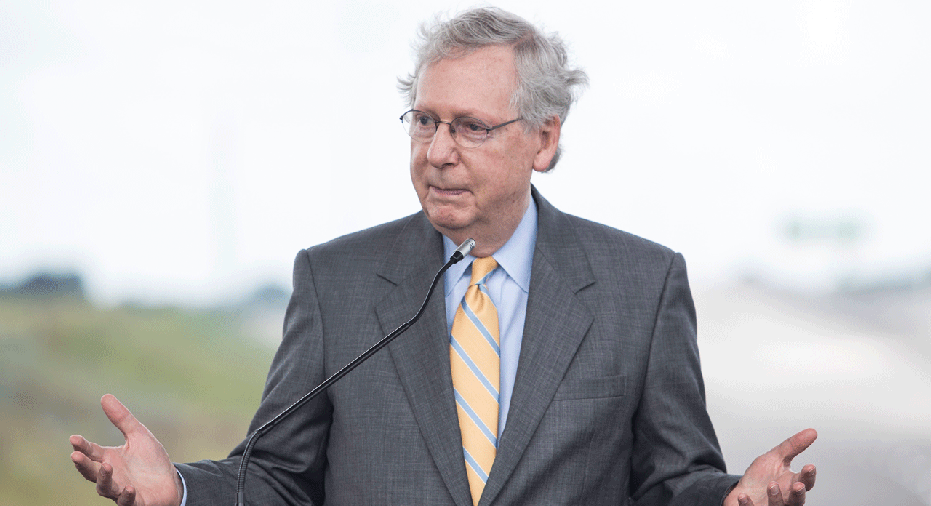ObamaCare repeal in limbo as GOP eyes new health care strategy

Following the Senate health care bill’s defeat Monday night, the GOP said Tuesday it will turn to a repeal first, replace later strategy as the party seeks to reform the health care system.
“In the coming days, the Senate will take up and vote on a repeal of Obamacare combined with a stable, two-year transition period as we work toward patient-centered health care. A majority of the Senate voted to pass the same repeal legislation in 2015. President Obama vetoed it then. President Trump will sign it now,” Senate Majority Leader Mitch McConnell (R-Ky.) said in a statement Tuesday.
President Donald Trump also resurfaced the idea, which had been floated before the July recess, in a tweet Tuesday morning.
Republicans should just REPEAL failing ObamaCare now & work on a new Healthcare Plan that will start from a clean slate. Dems will join in!
— Donald J. Trump (@realDonaldTrump) July 18, 2017
Vice President Mike Pence said Tuesday he “fully” supports McConnell’s decision to move forward with repeal first.
However, not all Republican senators are on board with this strategy, either. At least two lawmakers in the chamber have come out against the measure so far—Sen. Rob Portman (R-Ohio) and Sen. Susan Collins (R-Maine). If one more defects, Republicans won’t be able to move forward with a simple repeal this week, keeping Trump’s health care promise unfulfilled.
Like Portman and Collins, some experts don’t believe this is a feasible alternative to replacing ObamaCare.
“[Repeal first, replace later] is not going to happen, there’s no chance,” said Chris Pope, senior fellow at the Manhattan Institute, during an interview with FOX Business. “The president had mentioned it a couple of weeks ago ... it’s not a serious proposal, it’s not a serious strategy.”
Facing the prospect of being unable to repeal ObamaCare, the GOP essentially has two imminent issues to address, Pope said. One is Medicaid, and according to Pope, there is nothing that can be done to reform the program assuming repeal and replace is off the table.
“Medicaid is going to continue [to expand] on autopilot,” he said.
The second challenge is the insurance market, which Pope said can be addressed by the administration through executive action. The White House can curb premium increases and free up attractive alternatives to the ObamaCare plan, Pope said.
However, all hope for an immediate replacement may not be lost. Pope thinks recent Senate failures could encourage the party to figure out what the real alternatives for health care are in the near future – similar to what happened in the House.
Late Monday, two additional senators unexpectedly joined Sen. Rand Paul (R-Ky.) and Sen. Susan Collins in announcing they would not support McConnell’s revised bill to repeal and replace ObamaCare. Sen. Jerry Moran (R-Ks) said Monday the bill was “bad policy” and fails to both repeal ObamaCare and remedy rising costs. Sen. Mike Lee (R-Utah) also said the Senate’s bill did not do enough to lower costs and he opposed leaving in some of the taxes mandated under the Affordable Care Act.
Paul had previously expressed concerns about the insurance stabilization funds, telling FOX Business in an interview last week that propping up insurance companies amounted to “crony capitalism”. Meanwhile, Collins did not support the slowing of the Medicaid expansion – in any version of the Senate’s bills.
Moran said Tuesday he supports McConnell’s latest push to repeal first, replace later.



















